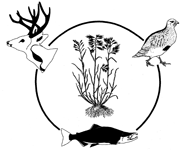Extension Wildlife & Fisheries Specialists Conferences

Triennial National Wildlife and Fisheries Extension Specialists Conference: 8th (1996)
Date of this Version
6-1-1996
Document Type
Article
Abstract
The popularity of developing sportfish leases is increasing rapidly in the South, much as development of hunting leases has done over the past three decades. This trend is occurring because an increasing number of: (1) landowners realize that their ponds and reservoirs are valuable resources capable of generating additional profits and (2) anglers desire a level of exclusivity not normally available on public waters. A sound economic evaluation of sportfish leasing opportunities is essential if landowners are to identify their most profitable alternatives. Net present value analysis is recommended as one method for evaluating compared profitability of selected investment and leasing strategies. Case studies are presented to illustrate analyses where sportfish leasing is the sole recreational lease and where sportfish leasing is viewed as a value-added amenity when combined with a hunting lease. Key economic values directly affecting the profitability of sportfish leasing alternatives include investment costs, lease rate, annual operating costs, interest rates, and desired rate of return on investment.


Comments
Published in W. Daniel Edge, ed. Proceedings of the 8th National Extension Wildlife and Fisheries Specialists Workshop: Educational Challenges for the 21st Century. [1996] Corvallis, Oregon: Oregon State University, 1998.